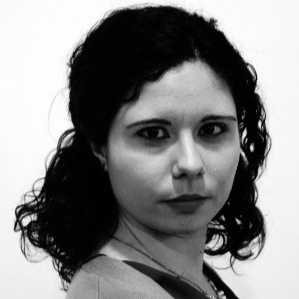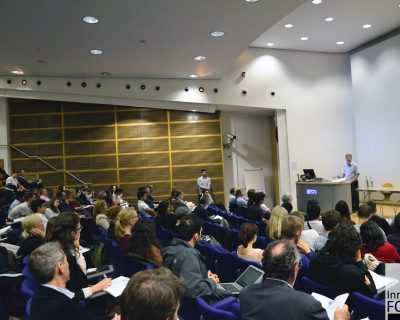Branch
Select your branch
Interview with Joana Neves Dos Reis regarding her recent volunteering actions in Timor
Joana Neves Dos Reis, Management Associate, Innovation Forum UCL Branch
Joana is a PhD student at the UCL Biochemical Engineering Department. Her research focuses on functional testing of cell lines for neuronal regeneration. Joana graduated from the Instituto Superior Técnico, at the University of Lisbon
 in Biological Engineering and has previously worked in industry for an FDA-approved pharmaceutical company in Portugal. Her main interests are knowledge transfer and innovation in regenerative medicine and science communication. She joined the UCL branch of Innovation Forum in October 2017 as a Management Associate and now she holds an Associate Business Development role.
in Biological Engineering and has previously worked in industry for an FDA-approved pharmaceutical company in Portugal. Her main interests are knowledge transfer and innovation in regenerative medicine and science communication. She joined the UCL branch of Innovation Forum in October 2017 as a Management Associate and now she holds an Associate Business Development role.
You have recently returned from one month of volunteering in East Timor. What have you done there? What issues in Timor did you set out to help with?
I was in East Timor working on a project called Everest Recycling Solutions with Project Everest, an Australian based company aiming to tackle the UN’s sustainable goals with social enterprise. My team’s goal was to set up an independent recyclable collection service that could be run by locals until July. One of East Timor’s biggest issues is waste management. There is currently no viable or sustainable solution for commercial or domestic waste. The rubbish either accumulates on the streets or is collected by a few unreliable collection services and dumped in a landfill called Tibar to be burnt.
Why did you choose East Timor and the volunteering programme you joined?
The choice of East Timor was obvious to me. Timor-Leste was a Portuguese colony up until the Carnation Revolution in 1974. After that, and weakened by a brief civil war over the country’s future, Timor was invaded by Indonesia and occupied for 26 years. With no support from the international community Timor-Leste lived a period of brutal Indonesian rule which ended in 2002 when they finally became independent. My connection to the country was more than the reminiscence of my culture. My connection to Timor was the campaign my country fought for their freedom and one I witnessed as a child. It was the story of resistance I grew up with and always admired. I chose to work with Project Everest because of the nature of the volunteering. I wanted my work to have a lasting impact. I wanted my work to build up to something that would improve a community; a country. Entrepreneurship to solve problems in a developing country was the obvious choice of volunteering for me.
Was it the first time in that area?
Yes. My first time out of Europe in fact.
Did you enjoy the country? Could you tell us about a couple of ‘wow’ moments (positive or negative)?
I really enjoyed living in Díli, the capital. My first wow moment was stepping out of the plane and feeling the very hot and humid air. The second was the taxi trip to the hostel through a four-lane road where cars don’t follow signs for left or right, they just honk to overtake each other…
What have you learned? Did you grow personally? What has changed in your life/behaviour?
People keep asking me that. I know I changed. I might need some time to realise how and to what extent. Witnessing poverty and working in a challenging environment can only change you. Even if it is just your perspective of what challenging means.
Could you describe to us a typical day? Conversely, could you tell us about one or two exceptional situations (emergency, danger, celebrations, etc)?
A typical day would start with a morning meeting where we would report our mental and physical health. That included evaluating our stool, an excellent indicator of good health, with the Bristol scale (look it up)! The day would be spent at a desk with my laptop reviewing employee contracts, writing emails to clients/potential partners, writing standard operation procedures (SOPs), devising strategies for sales or expansion, going out for sales, having meetings and training workshops in pitching, communication, assessing the impact of our operations, anticipating risks and finding mitigations, etc. We were constantly aware of the increased danger surrounding us compared to our home countries and were trained to deal with it. On the first week someone twisted their ankle while jogging. We had to call our leaders and apply first aid. We couldn’t call an ambulance because there was no such thing. Also, on the first week I saw several people get sick from common colds, with diarrhoea or spitting blood. I felt like a ticking bomb… Some people would have reactions to the anti-malarials like vivid dreams. It was only on the last week I noticed the toll the environment took on me with several mosquito bites I could not fight with repellent anymore. We were living next to a party venue, so it was usual to hear loud music until the early hours in the morning. On one occasion it only stopped when we got up at 5 am. Timorese love a good party. I also remember locals trying to speak with us in Tetum (one of the official languages) and offering us food on public transport. On several occasions we had groups of children following us and calling us Malai (meaning foreigner).
How deeply have you connected with your fellow volunteers and the local community?
It was particularly challenging for me because I was surrounded by Australians. The cultural shock was a lot more intense than I was expecting. Nonetheless, living and working together 24/ 7 does force a certain degree of intimacy. I was the last one to leave the country and it was an absolute torture to see everyone I’d lived with for the past month go, and to see the accommodation getting gradually empty. It was also a very enlightening and rewarding experience on the whole. I met people I will never forget. As for the local community, I only realised the depth of my connection when I was leaving, after building a relationship that allowed them to share their stories with me. It was also by the end that I had time to visit their Resistance Museum and their Truth and Reconciliation exhibition. It was really intense for me to realise the extent of the violence they were subjected to.
Could you tell us a bit more about your impressions of the Timor people (mood, humour, food, habits, rules, etc)?
Timorese people have a very easy smile. They are very kind and helpful. Not in an obvious way. They are attentive and will help you in a subtle way. They are also incredibly chilled and happy. Nothing seemed to get them down. For a conservative country they are very open-minded and acceptive of our crazy Malai things like partying in ridiculous clothes or running around doing challenges like drinking 4 coconuts in one go or doing squats in the supermarket (we did this for fun in a race around Díli). They also love to be outside and have a good workout like jogging to Cristo-Rei (a big statue of Jesus at the top of a hill). Their hand-shakes are accompanied by placing their hand on their heart. To someone older they take the back of their hand and place it on their forehead. Sometimes they hang on the door of public transport (small vans called microlets) when it is full. The microlets are always blasting with Latino tunes. They have over 10 versions of Despacito. The food is a delicious mixture of Portuguese and Indonesian flavours. Tropical fruit like papaya, mango and banana is really cheap and coconut water is a much appreciated beverage.
For anyone planning to travel there, any tips?
I’d say bring loads of DEET, a very powerful repellent. It will leave you without fingerprints and make you even warmer, but it is the only thing that works. Also bring an open mind and an open heart. Timor is still an unexplored and relatively untouched paradise, so as soon as you adapt to the extreme conditions you will receive more than you can ever give.
Would you consider going back? Or did the volunteering project contribute more to your experience than the hosting country?
I cannot disconnect the project from the country. The Everest Recycling Solutions in Díli is what it is because it is in Timor-Leste. The same project operating in another country is completely different, with a completely different set of premises and challenges. But, to answer both your questions, yes and no. I would definitely go back as I feel I left a bit of me behind with the project and with the country, but I feel both the project and the hosting country contributed equally to my experience.
Today, 8th March is International Women’s Day. What can you tell us about the role of women in Timor?
There is tangible respect and value of women and girls in Timor-Leste. They were extremely important during the resistance, as part of guerrilla groups in the mountains and as clandestine correspondents. Nowadays there are women in several sectors of society like the government and industry. Women and girls are encouraged to study and work. They are strong, fierce and independent. It is unfortunate that societies evolve a lot quicker when subjected to war, but I believe it made Timor-Leste very advanced in gender equality for a developing country.


